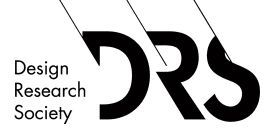contributions
Sticks, Ropes, Land: Confronting Colonial Practices in Public Space Design
CHISHOLM Jean
FALK Charlotte
KOZAK Laura
Emily Carr University of Art + Design, Vancouver
kozak@ecuad.ca
Presentation
Abstract
Sticks, Ropes, Land: Confronting Colonial Practices in Public Space Design is an iterative practice for generating hyper-local, community-led responses to public space design.
The project attempts to dismantle tokenistic methods of community consultation in the fields of planning and design, whereby ‘design experts’ consult with local stakeholders in ways that are instrumentalizing or over-simplified. This can limit the depth of information shared, lead to disconnected understandings of site, and perpetuate hierarchical dynamics between designers, planners and the communities they seek to serve. Instead, Sticks, Ropes, Land investigates strategies that reposition place-based knowledge-holders, or “community stewards” into the role of highly qualified leaders with deep understandings of localized needs, and shift designers into modes of active listening and “being led by”.
A key focus of this project has been to recognize how the concept of public space is defined and upheld by colonial systems – both legal and cultural – and to reconsider this premise. By embedding values of reciprocity, care, and responsibility to the land into our design process, our intent is to serve place-based communities while developing alternative approaches to participatory public space design.
participatory design; public space; contextual design; place-based knowledge
Full Paper Coming Soon
Subscribe to our mailing list to know when new content is released.
About the Authors
Designing for Public Space is a Canadian design research team that investigates human-scale matters situated in the public realm. Stewardship, incremental change and place-based knowledge are defining values in our work. Utilizing principles adapted from architecture, urban design and community engagement practices, we collaborate with land trusts, municipalities, social service organizations, and schools to develop prototyping methods for site-specific interventions in public space.
Jean Chisholm is from Prince George, BC, and lives and works in Vancouver as a communication designer and researcher. Her research explores community engagement, local identities, and transitions towards sustainable ways of living, often with a focus on her hometown and other northern Canadian communities.
Charlotte Falk is an interdisciplinary designer and educator working in public art, industrial design, communication design, and architecture. Her practice considers how materiality and technique impact design processes. She is a Lecturer at Emily Carr University and an Instructor at Langara College.
Laura Kozak is a design researcher and community organizer. A core interest in collaborative design of the urban environment informs her research and teaching practice. She is a Research Associate of the DESIS Lab and teaches in the Jake Kerr Faculty of Graduate Studies at Emily Carr.


